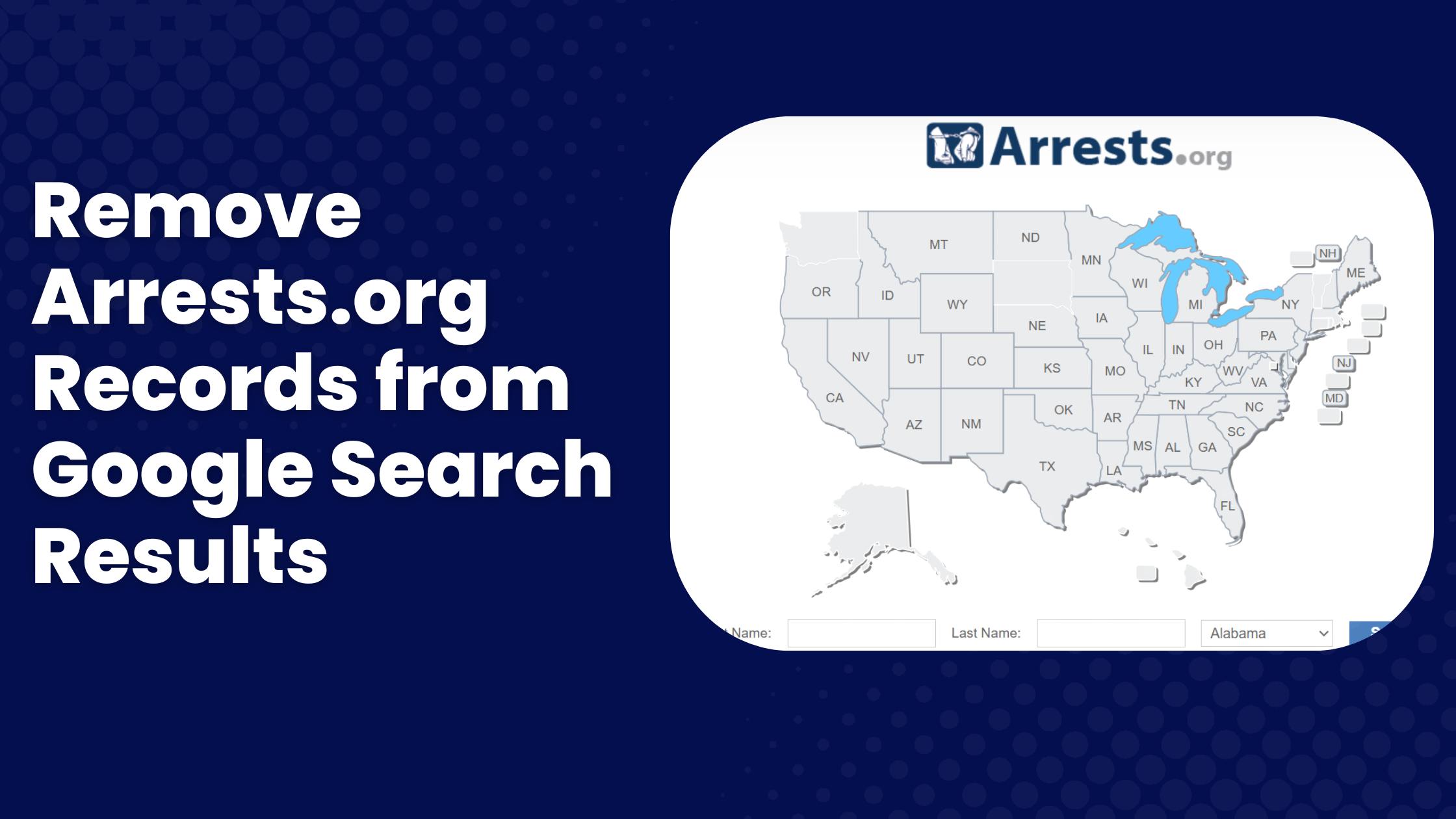First impressions frequently occur online, and unfavorable content like arrest records and mugshots on sites such as arrests.org can unfairly damage personal and professional reputations. If you’re looking for methods to suppress or eliminate arrests.org links that show up high in Google search results, you’re in good company. These pages often dominate searches, overshadowing an individual’s online presence, even if charges have been dismissed or records sealed.
Fortunately, there are practical, lawful, and technical approaches to address this effectively. This guide explores proven steps to suppress arrests.org links in Google searches, helping you regain control over your digital image and safeguard your reputation while adhering to legal standards and search engine guidelines.
Why Arrests.org Links Rank High in Google Searches
Grasping why arrests.org links appear prominently is key to suppressing them. Arrests.org and similar platforms compile arrest information from public government sources, making it available online and often profiting from ads or removal charges.
Key factors contributing to their high rankings include:
- Regular updates with new arrest data.
- Strong domain authority from years of operation and incoming links.
- High user engagement, signaling relevance to Google.
- Detailed personal information that matches search queries for names and areas.
As a result, arrests.org pages for arrest records and mugshots often rank at the top for affected people, displacing more positive or neutral content.
Practical Methods to Pushdown Arrests.org Links
Direct Removal Request via Arrests.org Opt-Out
ArArrests.org provides an opt-out option for individuals to request the deletion of their arrest records or at least the redaction of sensitive details like addresses and dates of birth. Availability can vary by entry, but when possible, this is the straightforward approach.
- Go to the specific profile page on arrests.org.
- Check for a “Remove Record” or opt-out option near the images or details.
- Submit your request with necessary identification for verification.
If no link appears, navigate to https://arrests.org/remove and add the profile’s unique ID, then follow the prompts, including uploading proof of identity. This process may not ensure complete deletion but can remove key personal data.
Contact Site Owner or Administrator
If the opt-out doesn’t work or isn’t available, reaching out directly via email or a formal notice to the site administrator can be effective. Use WHOIS tools to locate domain owner and hosting contacts if they’re not listed publicly.
- Communicate courteously yet assertively.
- Include supporting documents, like court orders for expungement or dismissal, to demonstrate the record’s inaccuracy or outdated status.
- Reference relevant privacy regulations, as certain states restrict mugshot publication or mandate removal on request.
Use Google’s Outdated Content Removal Tool
Google caches arrests.org pages but doesn’t host them. If arrests.org deletes or modifies a page, yet it lingers in Google’s results, you can request de-indexing through Google’s Outdated Content tool.
- Visit Google’s Outdated Content Removal form.
- Enter the precise URL of the arrest profile.
- Indicate that the content has been updated or removed from arrests.org.
- This targets Google’s index only, potentially removing it temporarily or permanently from searches.
Suppress Arrests.org URL with Positive Content
IWhen direct removal isn’t feasible, an alternative is to demote the arrests.org link by populating Google’s first page with positive, credible, and optimized content.
Effective types of content to develop or amplify include:
- Personal professional websites or portfolios.
- LinkedIn pages with endorsements.
- Articles or blogs on accomplishments or news.
- Press releases about achievements or recognitions.
- Entries in reputable directories or industry databases.
By promoting several trustworthy and frequently refreshed pages tied to your name, you can significantly reduce the arrests.org link’s prominence.
Hire ReputaForge to Suppress Arrests Record from Google Ranking
For professional handling and suppression of arrest records in Google search results, engaging a service like ReputaForge can yield substantial results. ReputaForge specializes in online reputation management (ORM), focusing on mugshot and arrest issues with strategies that effectively lower negative content.
ReputaForge combines SEO practices, content development, and legal understanding to suppress or remove damaging arrest records over time. They start with an in-depth review to pinpoint all relevant URLs appearing in searches for your name, then craft custom assets like articles, profiles, and releases to build positive narratives. With ongoing refinement, link building, and tracking, ReputaForge works to push mugshot links lower in Google results.
In contrast to questionable payment-based removals from mugshot sites, ReputaForge employs ethical, sustainable methods that function even without site cooperation. Clients receive clear updates, personalized plans, and discreet service.
Numerous people dealing with harmful mugshot visibility have restored their online reputations in months through ReputaForge’s guidance. Whether rebuilding a career or protecting professional standing, their services offer reliable support against negative arrest listings.
Ready to Clear Your Online Record? Start with ReputaForge Today
Key Tips to Enhance Effectiveness
- Monitor your online presence consistently: Set up Google Alerts or use monitoring software to track emerging or reappearing arrest links.
- Record all interactions: Save emails, approvals, or rejections for potential follow-ups or escalations.
- Highlight privacy issues: Invoke applicable state or federal laws, such as those in Florida barring republishing after removal.
- Watch for fraudulent schemes: Avoid sites demanding fees for removal, which may violate laws in some areas.
- Exercise patience and follow through: Processes for removal can span weeks to months, especially with legal or Google involvement.
Conclusion
Suppressing an undesired arrests.org link from Google search results is demanding but attainable with targeted strategies. Although outright removal from arrests.org or Google isn’t always possible due to public record regulations and search algorithms, professional reputation management emphasizing suppression via credible positive content and continuous improvement provides a solid path.
For those committed to reclaiming their online identity and mending their reputation, partnering with specialists is crucial. ReputaForge excels as a dependable ally, delivering tailored, ethical approaches with SEO, content, and legal expertise to durably lower arrest records in Google’s top results. Their team ensures effective outcomes, helping clients progress beyond past digital challenges.
To protect your future and prevent outdated or incorrect arrest details from shaping your online image, rely on ReputaForge—where skilled support leads to lasting success.
FAQs
Q1. Can I completely remove my arrests.org link from Google search results?
Answer: Full removal hinges on site cooperation and legal factors. Options include arrests.org opt-out, Google’s outdated content tool, or legal expungement. If unsuccessful, suppressing via robust positive content serves as a strong alternative.
Q2. Is it legal for sites like arrests.org to post my mugshot?
Answer: Generally yes, as mugshots are public records. However, some states limit commercial exploitation, and laws may prohibit removal fees. Consulting legal experts can outline protections in your jurisdiction.
Q3. How long does the removal or suppression process take?
Answer: Timelines differ—from weeks for basic site or Google requests to months for expungements or handling multiple sites. Consistent monitoring and persistence are vital.
Q4. Can I request removal if charges were dropped or I was acquitted?
Answer: Yes, and supplying court evidence of dismissal or acquittal strengthens your case. Sites aren’t always required to comply unless expungement laws apply.
Q5. What if arrests.org refuses to remove my information?
Answer: Explore legal options like complaints under privacy statutes or engage a reputation service for escalation. As a backup, use positive content to diminish visibility.
Q6. Do paid data removal services guarantee results?
Answer: Reputable providers strive for thorough outcomes but can’t assure total success. Look for transparency on limitations and commitments to ongoing support.
Q7. How can I protect my privacy proactively?
Answer: Conduct regular digital audits, adjust social media privacy, limit sharing sensitive data, and utilize tools for data broker removals to minimize exposure.





